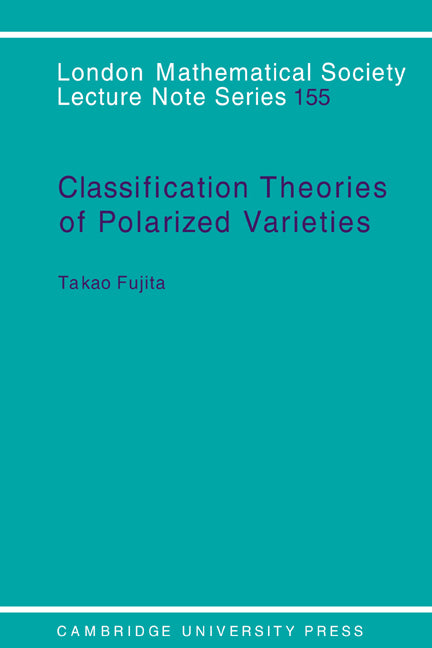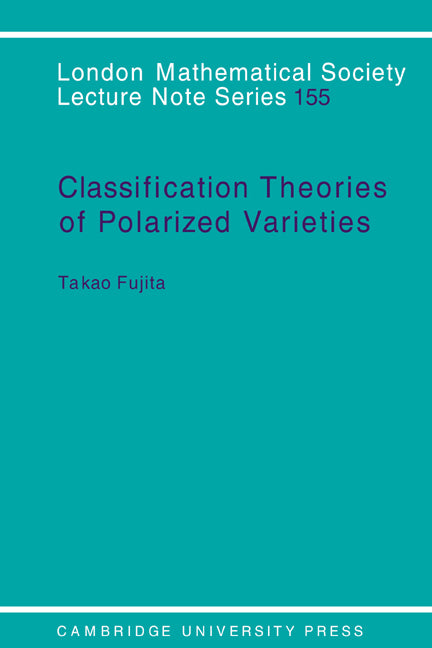Freshly Printed - allow 8 days lead
Couldn't load pickup availability
Classification Theory of Polarized Varieties
Takao Fujita (Author)
9780521392020, Cambridge University Press
Paperback, published 23 August 1990
220 pages
22.7 x 15.3 x 1.2 cm, 0.32 kg
"...readable, very useful book. This book belongs in the library of every geometer." Andrew J. Sommese, Bulletin of the American Mathematical Society
A polarised variety is a modern generalization of the notion of a variety in classical algebraic geometry. It consists of a pair: the algebraic variety itself, together with an ample line bundle on it. Using techniques from abstract algebraic geometry that have been developed over recent decades, Professor Fujita develops classification theories of such pairs using invariants that are polarised higher-dimensional versions of the genus of algebraic curves. The heart of the book is the theory of D-genus and sectional genus developed by the author, but numerous related topics are discussed or surveyed. Proofs are given in full in the central part of the development, but background and technical results are sometimes just sketched when the details are not essential for understanding the key ideas. Readers are assumed to have some background in algebraic geometry, including sheaf cohomology, and for them this work will provide an illustration of the power of modern abstract techniques applied to concrete geometric problems. Thus the book helps the reader not only to understand about classical objects but also modern methods, and so it will be useful not only for experts but also non-specialists and graduate students.
Introduction
1. Delta-genus and the hyperplane section method
2. Sectional genus and adjoint bundles
3. Related topics
4. Varieties of small degrees
5. Varieties of small codimension
6. Varieties of small secant varieties
7. Varieties with many lines
8. Hyperelliptic polarised varieties
9. Castelnuovo bounds and Castelnuovo varieties
10. Ample vector bundles with small invariants
Appendix 1: Background information
Appendix 2: Computer constructed classification of polarised varieties.
Subject Areas: Algebraic geometry [PBMW]


